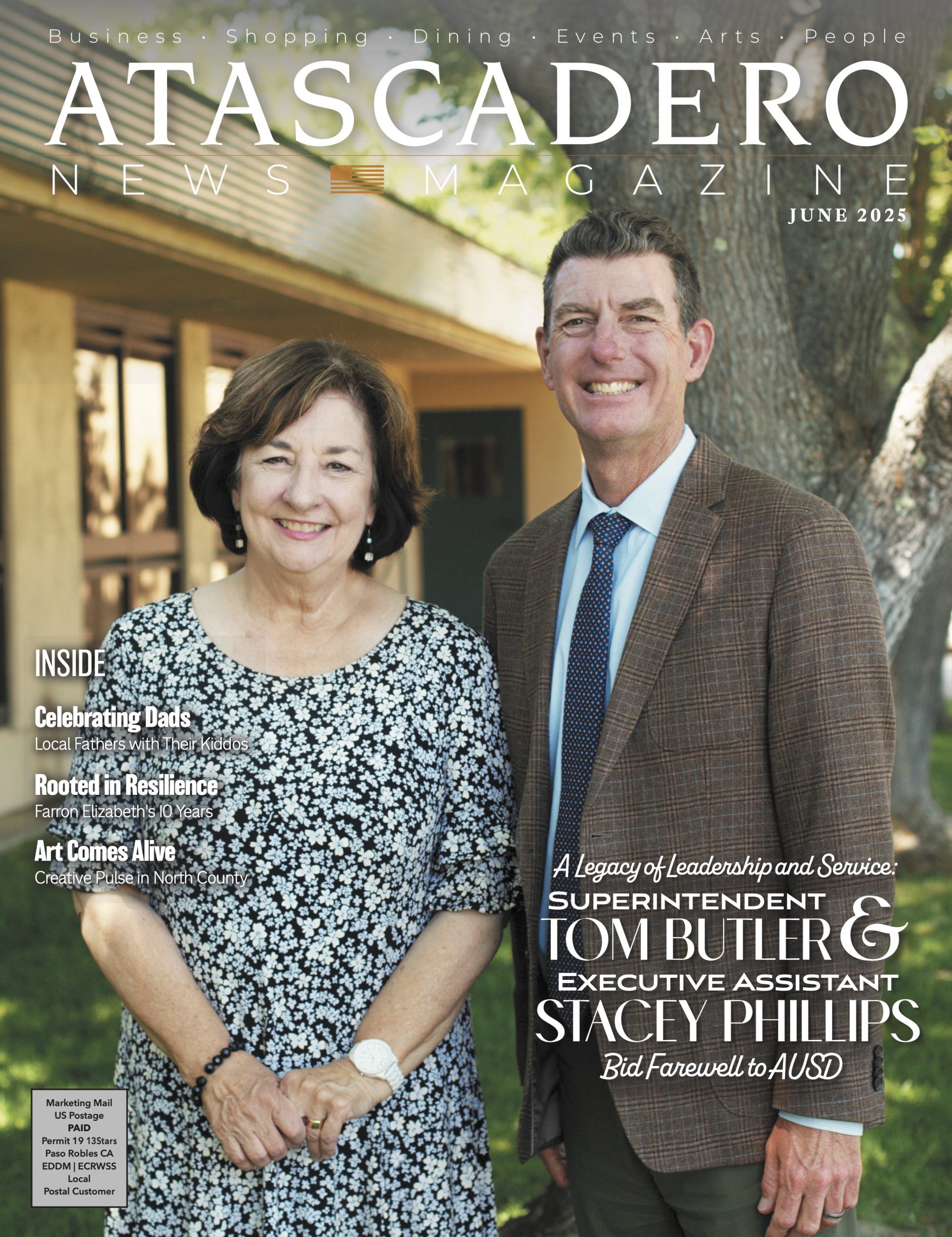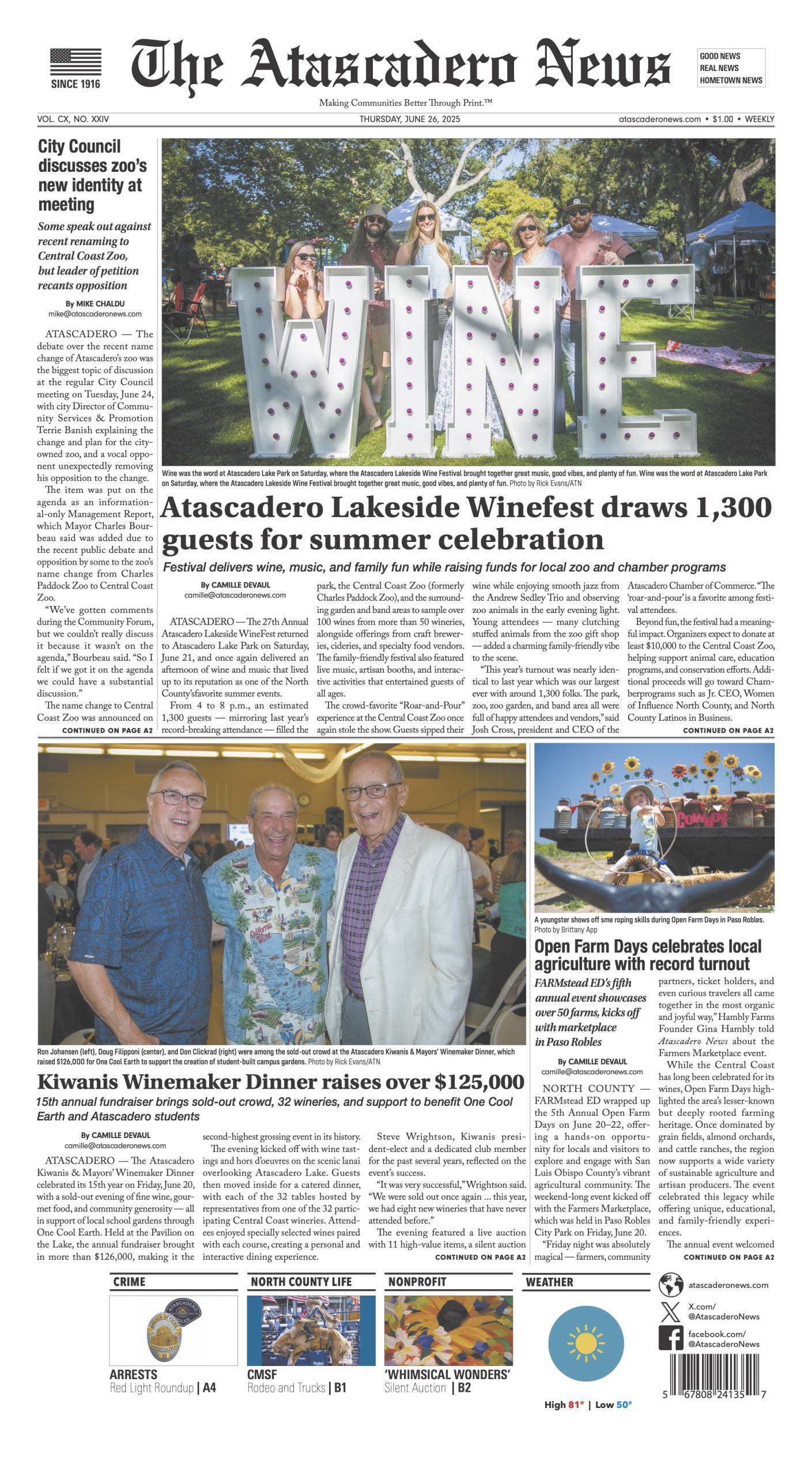By Thomas Elias
Thomas Elias is an independent opinion columnist for The Atascadero News and Paso Robles Press; you can email him at tdelias@aol.com.
Vice President Kamala Harris took a lot of heat for her performance in her first foreign trip as the nation’s No. 2 official, some bloggers calling her excursion into Latin America “a continuation of her failure theater.”
That phrase came from a conservative website, but the far left also blasted Harris for telling the poorest of the Central American poor “Do not come” to the United States.
The remark had future electoral implications because Harris’ fellow Democrats of most stripes are sympathetic to poor but enterprising immigrants from countries like Guatemala, Honduras, and El Salvador. They blanched upon hearing her simple statement of the immigration preferences of the current administration and all other recent ones.
Donald Trump, for example, took heat for his treatment of immigrants, especially children. But Barack Obama’s administration, with current President Joe Biden as vice president, actually deported more prospective newcomers to America.
Whether Biden seeks a second term or becomes a caretaker president who leaves after just one, it’s all but certain Harris will one day run again for America’s highest office.
If she does, she could collide with Gavin Newsom, provided the governor survives this fall’s recall election, as every nonpartisan poll indicates he will – and by a handy margin. As a rule, politicians who triumph over recall attempts are strengthened, the best California example being Dianne Feinstein, an unbeatable U.S. Senate candidate after she trampled a recall attempt while mayor of San Francisco.
If Newsom beats the recall and then wins reelection next year, he could choose to run for Feinstein’s Senate seat in 2024, when she will be 90, or he could opt to run for president and thus crash into Harris.
That would be a huge change. Newsom and Harris have shared campaign managers for many years and have long had an informal understanding never to oppose each other’s ambitions.
That’s why Newsom, then lieutenant governor, stood by quietly awaiting a 2018 run for governor while Harris won an open Senate seat with little competition in 2016. But their understanding might not survive the reality that time is passing and neither is getting younger.
Until Harris’ Latin American trip, Newsom had never uttered a critical word about the vice president, who – like Newsom — got her start in San Francisco politics, winning two terms as district attorney before becoming California’s attorney general and then a senator.
But Harris no sooner returned to Washington, D.C.. from her trip than Newsom checked in on the side of left-wing Democrats like Alexandria Ocasio-Cortez, who earlier blasted Harris for her anti-immigration remarks. In a press conference just after Harris’ return, Newsom observed that “California has long had a different approach to immigration, a more inclusive approach.” He added that he has consulted with other federal officials about “how California can be more supportive in terms of the needs of asylum seekers.”
That’s not exactly the Harris approach these days. In fact, her blunt advice for the Central American poor to stay put was reminiscent of her generally pro-police responses to law enforcement excesses while she was attorney general.
So could Newsom and Harris ever face off in a presidential primary? Their mutual campaign manager, Dan Newman, did not respond to emails seeking to ask him about that possibility.
For sure, it would be entirely unprecedented for two top politicos from the same state to vie for the same party’s nomination for president. It could set up a situation where they split what amounts to a pro-California vote, letting someone else slip past and get the nomination.
Right now, Harris is best positioned to win the next Democratic nomination race, whenever and however Biden leaves the Oval Office. But she could be weakened in a primary by alienating the party’s left, which demonstrated its clout by keeping Vermont Sen. Bernie Sanders a prominent candidate for most of the last decade.
Newsom, of course, could also opt to play the waiting-his-turn game again and spend years in the Senate if he took the Feinstein seat.
There’s a lot uncertain here for both Harris and Newsom, but the possibilities are entertaining, at the very least.













